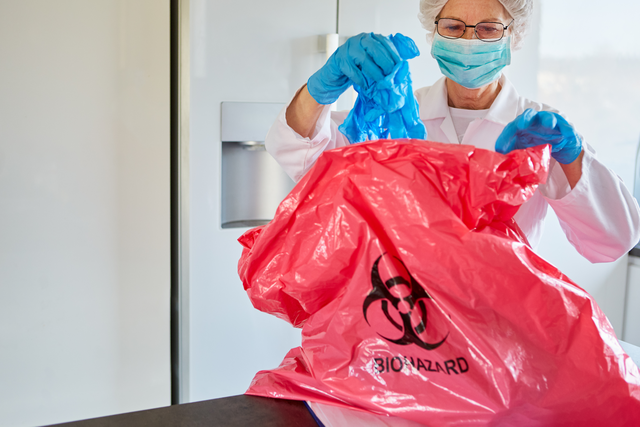In the contemporary world of healthcare and laboratory environments, the management of biohazard waste disposal has is a critical issue. Biohazard waste, if mishandled, poses a significant risk not only to the healthcare professionals but also to the public and the environment. Therefore, understanding how to handle and dispose of biohazard waste safely is imperative for maintaining public health and ecological balance.
What is Biohazard Waste?
Biohazard waste, also known as biomedical or infectious waste, encompasses a variety of waste products that potentially contain infectious agents or are hazardous to human health. The classification of biohazard waste typically includes:
- Sharps Waste: This includes needles, syringes, and other materials capable of puncturing or cutting the skin.
- Pathological Waste: Human or animal tissues, organs, and body parts.
- Microbiological Waste: Laboratory waste such as cultures, specimens, and disposable tools used in handling these cultures.
- Chemical Waste: Chemicals used in the production of biological materials or chemicals mixed with biological waste.
- Pharmaceutical Waste: Expired, unused, and contaminated drugs and vaccines.
- Isolation Waste: Waste generated from isolated patients who are known to have a highly communicable disease.
The Importance of Properly Handling Biohazard Waste
The safe handling of biohazard waste is critical for several reasons:
- Health Risks: Improper handling can lead to the spread of infectious diseases. Healthcare workers, sanitation staff, and even the public can be at risk.
- Environmental Impact: Inadequately disposed of biohazard waste can contaminate the environment, including water bodies and soil, leading to broader ecological issues.
- Legal and Ethical Responsibility: Healthcare facilities have a legal and ethical obligation to manage waste responsibly to prevent harm to the community and the environment.
Biohazard Waste Disposal Guidelines and Regulations
Various regulations govern the disposal of biohazard and medical waste, and these can differ by region. In the United States, for instance, the Occupational Safety and Health Administration (OSHA), the Environmental Protection Agency (EPA), and state health departments have set guidelines and regulations.
- OSHA Standards: OSHA has specific guidelines for handling sharps, labeling of biohazardous waste, and employee training.
- EPA Regulations: The EPA regulates the treatment and disposal of hazardous waste, including biohazard waste, under the Resource Conservation and Recovery Act (RCRA).
- State Regulations: States have their specific regulations, which can sometimes be more stringent than federal laws.
Compliance with these regulations is not only a legal requirement but also a crucial component of public health policy.
Methods of Biohazard Waste Disposal
If you’re wondering “Can bio waste be disposed of better?” The answer is a resounding “Yes!” The proper disposal of biohazard waste typically involves several steps and methods, including:
- Segregation: Waste must be segregated into biohazard waste containers at the point of generation according to its type and hazard level.
- Labeling and Packaging: A container or bag used for biohazard waste must be labeled and color-coded. Sharps must be placed in puncture-resistant containers.
- Treatment: Before disposal, most biohazard waste requires treatment to render it non-infectious. Common methods include autoclaving, incineration, chemical disinfection, and irradiation.
- Disposal: The final disposal method depends on the type of waste. Incinerated waste often goes to a sanitary landfill, while some chemically treated waste might require special handling.
Conclusion
The management of hazardous waste is a complex but vital aspect of healthcare and laboratory operations. Understanding the types of biohazard waste, the importance of safe handling, compliance with regulations, and segregating waste into the proper biohazard waste containers is crucial for the safety of healthcare professionals, the public, and the environment. By responsibly handling biohazard waste, we can mitigate health risks and contribute to a safer, healthier world.
If you’re looking for a fully integrated waste management company to safely handle your biohazard disposal needs, reach out to the Superior Medical Waste Disposal for a free quote today!
